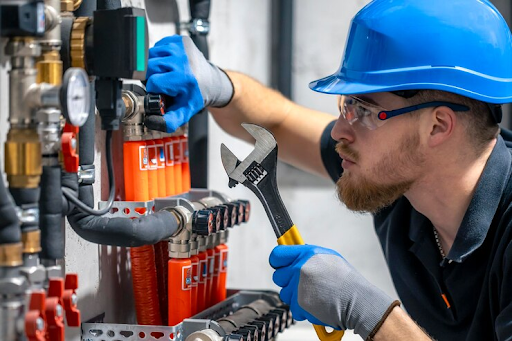Jaw crushers are the backbone of rock processing operations, reducing large rocks into usable materials for construction, mining, and recycling. These powerful machines rely on electric motors to generate the crushing force. However, the electrical supply feeding the motor might not be compatible in terms of voltage or current.
This is where electrical transformers come into play. They play a crucial role in efficiently stepping up or stepping down voltage levels to match the specific requirements of the jaw crusher motor. Selecting and maintaining the right electrical transformer is essential for ensuring the safe and efficient operation of your jaw crusher.
Let’s get started!
A Guide to Selecting and Maintaining Electrical Transformers for Jaw Crushers
This guide explores key factors to consider when choosing an electrical transformer for your jaw crusher and highlights essential maintenance practices.
Understanding Electrical Transformer Basics:
Electrical transformers are passive electrical devices that transfer electrical energy from one circuit to another by changing the voltage and current levels. In the context of jaw crushers, transformers are typically used to step down the incoming high voltage from the power grid to a lower voltage suitable for the jaw crusher motor.
This transformation process minimizes energy loss and ensures the motor operates within its designed parameters. When selecting a transformer for your jaw crusher, it's crucial to consider the motor's voltage and current requirements.
Additionally, factors like the transformer's kVA (kilovolt-ampere) rating, which signifies its power handling capacity, and its cooling system type (air-cooled or oil-cooled) need to be carefully evaluated.
Matching Transformer Capacity to Jaw Crusher Needs:
One of the most critical aspects of selecting an electrical transformer for your jaw crusher is ensuring it has sufficient capacity to handle the motor's electrical load. Running a jaw crusher with an undersized transformer can lead to overloading, overheating, and potential damage to both the transformer and the motor.
Consulting the jaw crusher's manual and the motor's specifications will provide vital information regarding its voltage and current requirements. With this data, you can select a transformer with a kVA rating that comfortably exceeds the motor's needs. A qualified electrician can also assist you in determining the appropriate transformer size for your specific jaw crusher model.
Considering Efficiency and Placement:
While the primary function of an electrical transformer is to adjust voltage levels, efficiency also plays a role. Look for transformers with high efficiency ratings, as these models minimize energy loss during the transformation process.
This translates to lower operating costs over time. Additionally, consider the placement of the transformer. Ideally, it should be located in a well-ventilated area away from excessive heat sources, moisture, or direct sunlight. Following the manufacturer's recommendations for transformer placement ensures optimal performance and longevity.
Safe Operation and Maintenance Practices:
Electrical transformers are generally low-maintenance equipment. However, some essential practices can ensure their safe and efficient operation. Regularly inspect the transformer for any signs of damage, such as oil leaks (for oil-cooled transformers), loose connections, or excessive noise.
Avoid overloading the transformer and ensure proper ventilation around the unit. If you suspect any issues with the transformer, refrain from operating the Jaw Crusher Machine Sales and seek assistance from a qualified electrician for troubleshooting and repairs.

